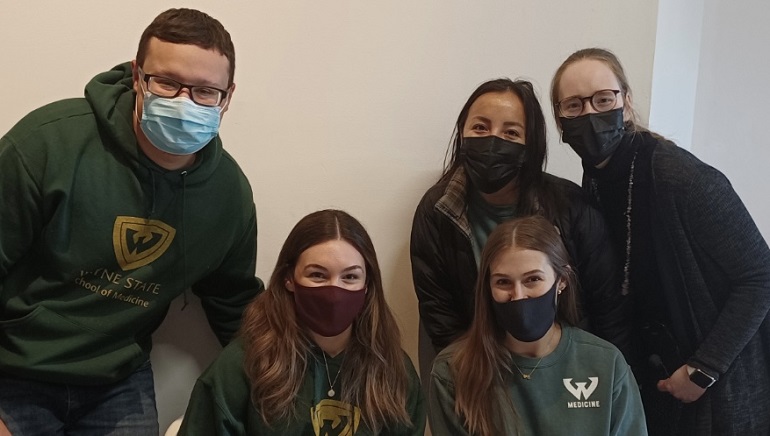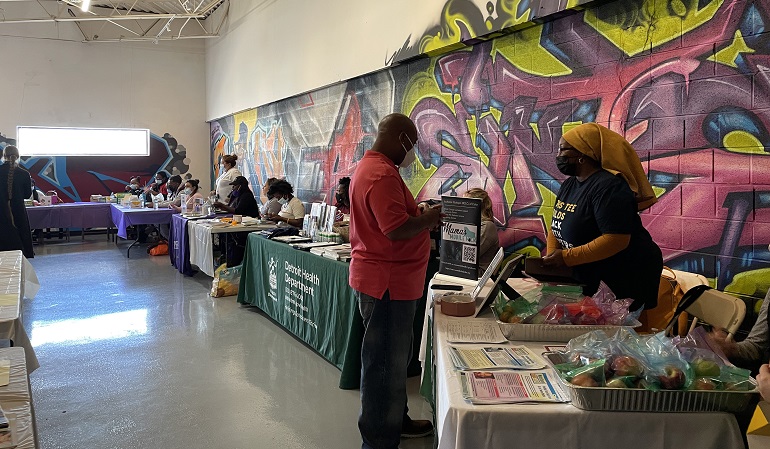
Eight students from the Wayne State University student chapter of the American Medical Association volunteered Oct. 8 at a community baby shower held in Detroit, where they interacted with mothers in a prenatal care program, helped run baby shower games, and distributed gifts such as diapers, bassinets, car seats, strollers and portable play yards to the mothers.
The event was co-hosted by the AMA student chapter at Oakland University William Beaumont School of Medicine for mothers who participate in a group pre-natal care program called Women-Inspired Neighborhood Network Detroit, or WINN.
WSU School of Medicine student Chayton Fivecoat was among the student volunteers.
“It showed me how our students can impact patients medically outside of traditional clinics or hospital settings. Working alongside our colleagues at WINN was an outstanding opportunity to see how health systems such as Henry Ford Health are working with the community to improve health outcomes in a number of different areas,” Fivecoat said. “I think it gave us an opportunity to work with expecting mothers to, hopefully, give them information or resources they can use to better care for their children. Also, it gave mothers an opportunity to ask us questions and potentially get to know their future health care providers earlier. It shows that doctors are not just a white coat. We want to help inside and outside of the clinic walls.”
Students also learned from various community organizations that specialize in infant care and educating mothers-to-be. Volunteers assisted with providing informational handouts on community resources available for mothers, as well as educational topics ranging from safe sleep for infants to breastfeeding and nutrition.
WINN is a non-profit organization that works alongside Henry Ford Health to reduce infant mortality in Detroit's Black population (learn more here).
The event also provided an opportunity for students interested in learning more about the Black patient population, and combatting social inequities that contribute to infant mortality.
“I think it showed that community outreach events matter almost more than what we do in the clinic or hospital,” Fivecoat said. “We learned that many of the participants learned a lot about their child’s development and how to best protect them from harm and nurture their growth from the various vendors and WINN staff. This type of education, as much as we like it to, is not as feasible inside the clinics. Creating education materials, showing up to events and doing as much preventative education as possible can create just as much as a benefit as our work in our various specialties.”
